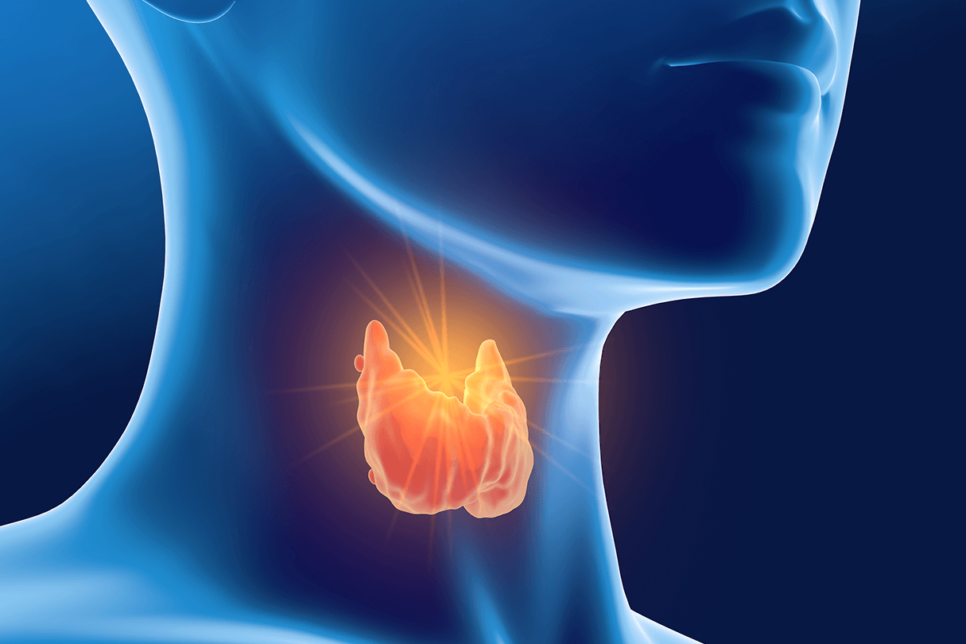Unraveling the Thyroiditis Mystery: What Your Body is Trying to Tell You
Discover the causes, symptoms, and treatment options for thyroiditis, a condition affecting the thyroid gland, and its impact on overall health.

Thyroiditis is a term used to describe a group of disorders that cause inflammation of the thyroid gland. The thyroid is a small, butterfly-shaped gland located in the lower front of the neck, just below the Adam's apple. It produces hormones called thyroxine (T4) and triiodothyronine (T3), which help regulate the body's metabolism, temperature, and energy levels. Thyroiditis can disrupt the production of these hormones, leading to a variety of symptoms and potential complications.
There are several types of thyroiditis, each with its own set of causes and symptoms. Some common types include Hashimoto's thyroiditis, De Quervain's thyroiditis, postpartum thyroiditis, and silent thyroiditis. Hashimoto's thyroiditis, also known as chronic lymphocytic thyroiditis, is the most common form and is an autoimmune disorder in which the immune system mistakenly attacks the thyroid gland. This can result in an underproduction of thyroid hormones, known as hypothyroidism. De Quervain's thyroiditis, on the other hand, is a painful, temporary form of thyroiditis often caused by a viral infection. Postpartum thyroiditis occurs in some women after giving birth and is thought to be an autoimmune condition triggered by hormonal changes during pregnancy. Silent thyroiditis, closely related to postpartum thyroiditis, also involves the immune system attacking the thyroid gland but is not associated with pain.
Symptoms of thyroiditis can vary depending on the type and stage of the condition. In the early stages of some forms of thyroiditis, the thyroid may produce too much hormone, resulting in hyperthyroidism. Symptoms of hyperthyroidism can include weight loss, rapid heartbeat, irritability, anxiety, fatigue, and difficulty sleeping. As the condition progresses, the thyroid may become underactive, leading to hypothyroidism. Symptoms of hypothyroidism can include weight gain, fatigue, constipation, dry skin, depression, and sensitivity to cold. In some cases, thyroiditis can cause the thyroid gland to become enlarged, resulting in a visible swelling in the neck called a goiter.
Diagnosis of thyroiditis typically involves a thorough medical history, physical examination, blood tests to measure thyroid hormone levels, and imaging tests to visualize the thyroid gland. Treatment for thyroiditis is tailored to the specific type and severity of the condition. For those with hypothyroidism due to Hashimoto's thyroiditis, hormone replacement therapy with synthetic thyroid hormone may be prescribed to restore normal hormone levels. In cases of De Quervain's thyroiditis, anti-inflammatory medications, pain relievers, and sometimes corticosteroids may be used to relieve pain and reduce inflammation. For postpartum and silent thyroiditis, treatment may include monitoring hormone levels and managing symptoms, with hormone replacement therapy used only if hypothyroidism becomes severe or persistent.
It is essential to seek medical attention if you suspect you may have thyroiditis or are experiencing symptoms that may be related to a thyroid disorder. Early diagnosis and appropriate treatment can help alleviate symptoms, restore normal hormone levels, and prevent complications. In addition, maintaining a healthy lifestyle that includes regular exercise, a balanced diet, and stress management can support overall thyroid health and help prevent thyroid disorders.





